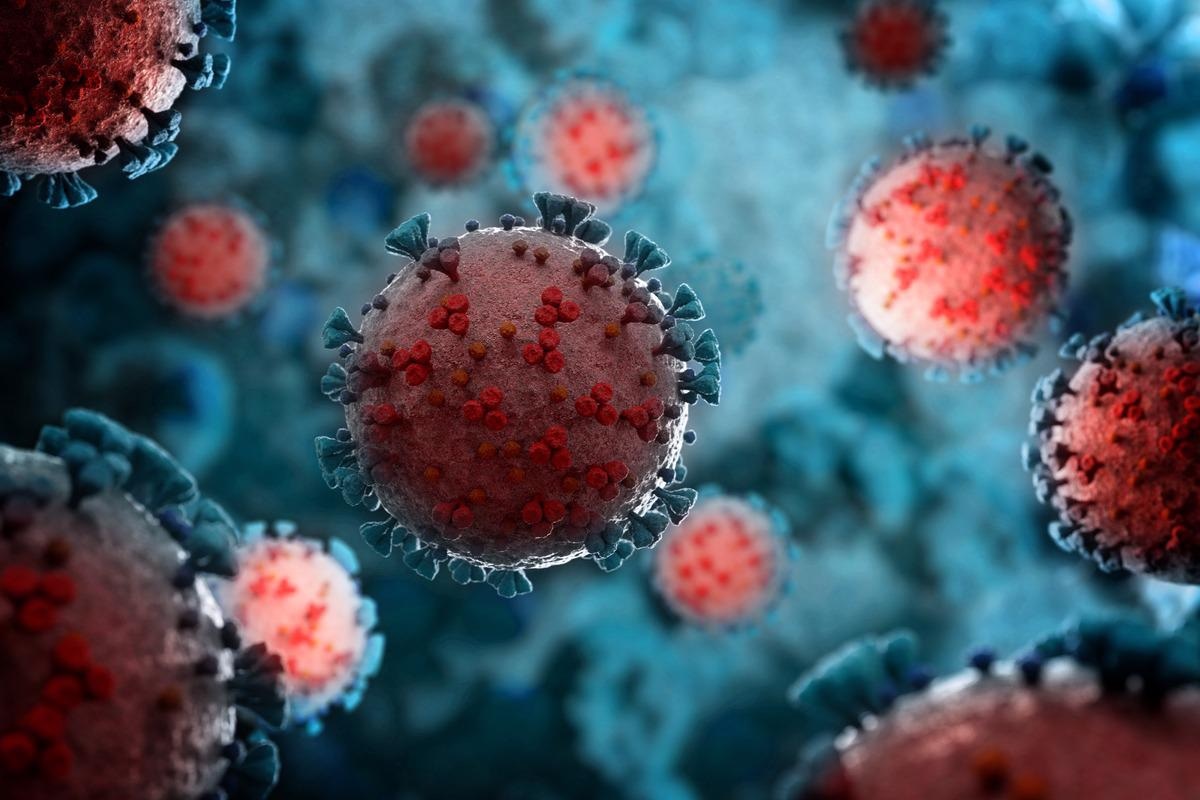The coronavirus disease 2019 (COVID-19) pandemic, caused by severe acute respiratory syndrome coronavirus 2 (SARS-CoV-2), has claimed more than 5.3 million lives worldwide. This virus causes a wide range of symptoms from mild to severe infection, which may also result in death. Since the onset of the pandemic, scientists have been working extremely hard to understand every phase of the virus; yet, many aspects are yet to be uncovered.
 Study: Pre-existing humoral immunity to human common cold coronaviruses negatively impacts the protective SARS-CoV-2 antibody response. Image Credit: sdecoret/Shutterstock
Study: Pre-existing humoral immunity to human common cold coronaviruses negatively impacts the protective SARS-CoV-2 antibody response. Image Credit: sdecoret/Shutterstock
Impact of common cold on SARS-CoV-2 infection
One of the common viruses that circulated before SARS-CoV-2 is the human common cold coronavirus (hCCCoV). There is no evidence linking susceptibility to COVID-19 infection and disease severity with immune response induced after hCCCoV infection.
Four strains of the hCCCoV virus have been endemic in humans for decades. Generally, these viruses infect the upper respiratory tract and cause the common cold or mild symptoms. Previous research revealed that hCCCoVs and SARS-CoV-2 share around 30% homology within their spike proteins. However, the severity of symptoms is drastically different. These studies also showed the presence of cross-reactive antibodies that bind to both viruses. However, as stated above, it is not yet clear if hCCCoV antibodies impact the immune response against SARS-CoV-2 infection.
Researchers believed that antibodies induced after hCCCoV infections could enhance SARS-CoV-2 immunity if they were adequately cross-reactive with SARS-CoV-2. This phenomenon was thought to be beneficial as these cross-reactive antibodies could boost immune protection and support viral clearance. However, another group of scientists claimed that pre-existing hCCCoV humoral immunity could inhibit the production of effective SARS-CoV-2-specific antibodies by expanding cross-reactive antibodies that do not neutralize SARS-CoV-2.
They further indicated that existing hCCCoV immunity might aggravate the infection by assisting virus invasion into FcR-expressing cells to cause antibody-dependent enhancement of disease. This phenomenon is known as immune imprinting, first documented during influenza infections. Immune imprinting may hinder immune response to a novel virus when the pre-existing antibodies against conserved epitopes dominate the immune response. However, these antibodies are not effective against the novel virus.
Since pre-existing hCCCoV antibodies may influence the outcome of SARS-CoV-2 infection, it is essential to understand its role in COVID-19 disease. The existing documents have revealed certain conflicting reports. Some studies indicate antibodies specific for hCCCoVs are beneficial during SARS-CoV-2 infection, while others denied such effect. One of the reasons for such inconsistent data is that most of these studies did not investigate the level of hCCCoV antibodies in the same individual before and after SARS-CoV-2 infection.
Some studies have reported that levels of hCCCoV antibodies are not correlated with SARS-CoV-2 disease severity, while other groups of researchers have contradicted this report. Recently, researchers have focussed on determining hCCCoV IgG, IgM, and IgA antibodies, before and after SARS-CoV-2 infection. In this study cohort, SARS-CoV-2 infections were confirmed via the RT-PCR test. This study has been published on Cell Host and Microbe.
About the study
The authors found a significant increase in the betacoronaviruses IgG antibodies; however, the elevated levels of hCCCoV antibodies were not associated with protecting an individual from SARS-CoV-2 infection. One of the interesting correlations reported in this study is that a larger increase of hCCCoV antibodies is linked with higher antibody levels to SARS-CoV-2 following infection. This result is in line with previous reports showing memory B cells specific for hCCCoV infection impacted later occurring SARS-CoV-2 infection. These antibodies did not neutralize SARS-CoV-2.
In this study, scientists utilized the mice model, where the mice were vaccinated with hCCCoV spike proteins before being introduced to the SARS-CoV-2 spike. They found that the mice vaccinated with hCCCoV spike proteins before the SARS-CoV-2 spike showed a profound decrease in SARS-CoV-2 neutralizing antibodies compared with mice only immunized with SARS-CoV-2 spike.
Previous studies have stated that several factors, such as age, gender, comorbidity, etc., influence the susceptibility to SARS-CoV-2 infection. The current study has added to the list of factors by revealing that hCCCoV immunity inhibits effective immunity to SARS-CoV-2 infection. The B cells of a person infected with hCCCoV several times are fine-tuned through affinity maturation and clonal selection, resulting in the production of higher affinity hCCCoV-specific antibodies.
As SARS-CoV-2 is a novel virus, it was surprising that IgM antibodies did not precede IgG antibodies. This study hypothesizes that betacoronavirus IgG and IgA antibody levels are the more determining factor of an individual’s cumulative response to hCCCoV rather than the timing of a recent infection. Additionally, though younger age groups are more exposed to hCCCoV than older individuals, the hCCCoV IgM bias in younger participants may be the reason why younger individuals experience less disease severity than older individuals.
Conclusion
One of the limitations of this study is the small sample size. Another limitation is that the study cohort consisted of only employees, and this restricted the age of participants, i.e., the cohort lacked individuals whose ages were below 18 years or above 65 years. Importantly, the current study indicates that pre-existing hCCCoV IgG antibodies could inhibit the immune response to SARS-CoV-2.